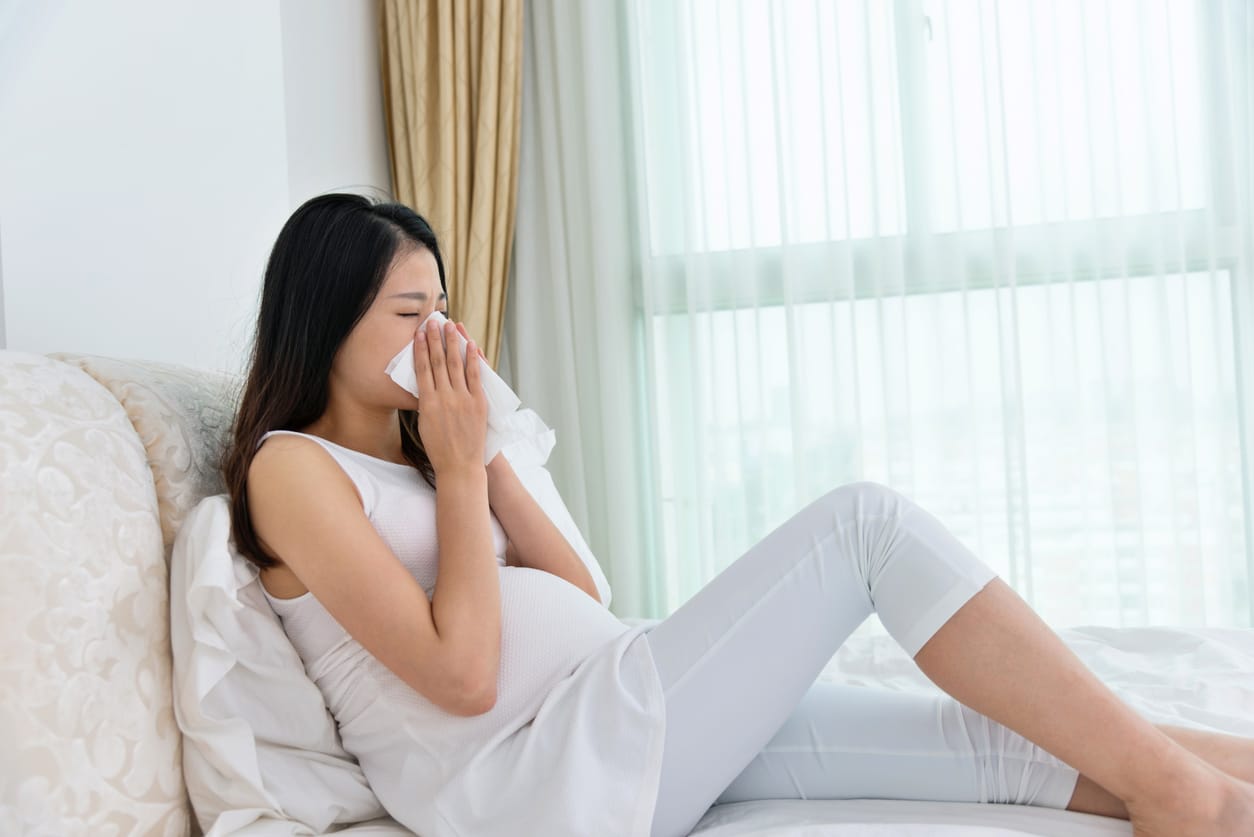Pregnancy is a time of significant change in a woman’s body. Alongside well-known symptoms like morning sickness and fatigue, some women experience a lesser-known condition called pregnancy rhinitis.
Pregnancy rhinitis can be uncomfortable and disruptive, but understanding it better can help manage its symptoms effectively. Here’s what you need to know about pregnancy rhinitis.
What is Pregnancy Rhinitis?

Pregnancy rhinitis involves inflammation and swelling of the nasal passages during pregnancy, leading to congestion, runny nose and sneezing. It can occur at any time during pregnancy but is most common in the second and third trimesters, affecting one-fifth of all pregnancies. Unlike typical allergic rhinitis, pregnancy rhinitis is not caused by allergens but is believed to be linked to hormonal changes, particularly related to the placenta growth hormone.
Symptoms of Pregnancy Rhinitis
The symptoms of pregnancy rhinitis are similar to those of allergic rhinitis and may include:
- Nasal Congestion
- Runny Nose
- Sneezing
- Postnasal Drip
- Itchy Eyes
These symptoms can be particularly bothersome at night, leading to disrupted sleep and fatigue.
Managing Pregnancy Rhinitis
While pregnancy rhinitis can be uncomfortable, several strategies can help manage the symptoms and improve quality of life:
- Saline nasal sprays: Saline sprays can help moisten the nasal passages and reduce congestion without the side effects associated with medicated nasal sprays.
- Humidifiers: Using a humidifier in your bedroom can add moisture to the air, helping to soothe dry nasal passages and ease congestion.
- Elevating the head while sleeping: Sleeping with the head elevated can reduce nasal congestion and improve breathing. Propping up pillows or using an adjustable bed can be helpful.
- Staying hydrated: Drinking plenty of fluids can thin mucus secretions and help keep the nasal passages clear.
- Exercise: Gentle exercise, like walks through Fossil Park, can improve circulation and temporarily relieve nasal congestion. Always consult with a doctor before starting any new exercise regimen during pregnancy.
When to Consult a Doctor
While pregnancy rhinitis is generally not harmful, it’s essential to distinguish it from other conditions that could require medical attention. If you experience severe congestion, facial pain, green or yellow nasal discharge or symptoms that affect your ability to sleep or perform daily activities, consult your doctor. They can rule out other causes, such as sinus infections, colds or allergies and provide additional treatment options if necessary. Additionally, should you experience a fever over 101 degrees, call your doctor, as fevers can be harmful during pregnancy, and pregnancy rhinitis won’t give you a fever.
Pregnancy rhinitis is a common but often overlooked condition that can cause discomfort during pregnancy. Understanding its symptoms and management strategies can help expectant mothers find relief and maintain a more comfortable quality of life during this special time.
To learn more about pregnancy rhinitis or allergic rhinitis, contact Alpine Ear Nose & Throat PC today.